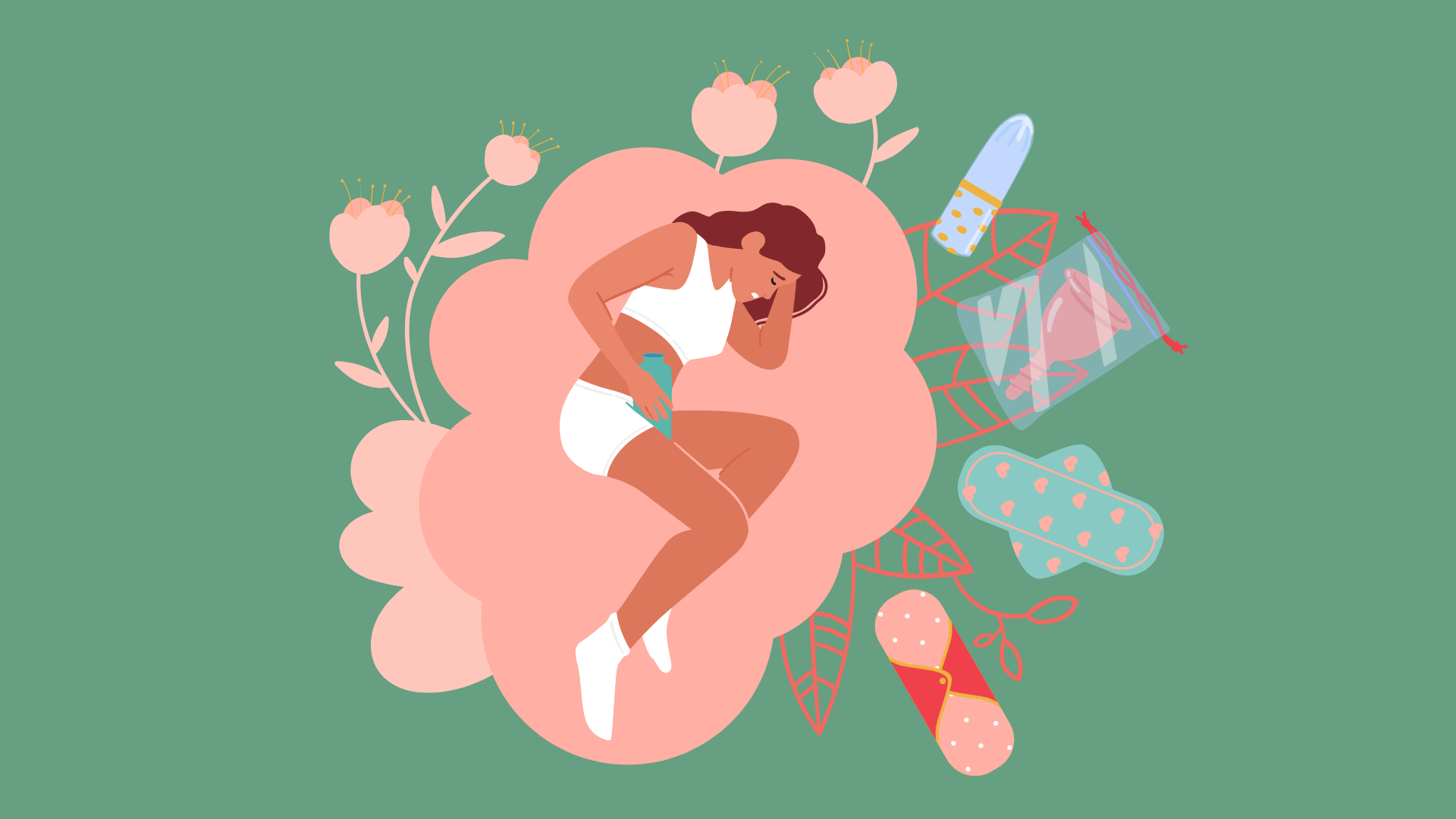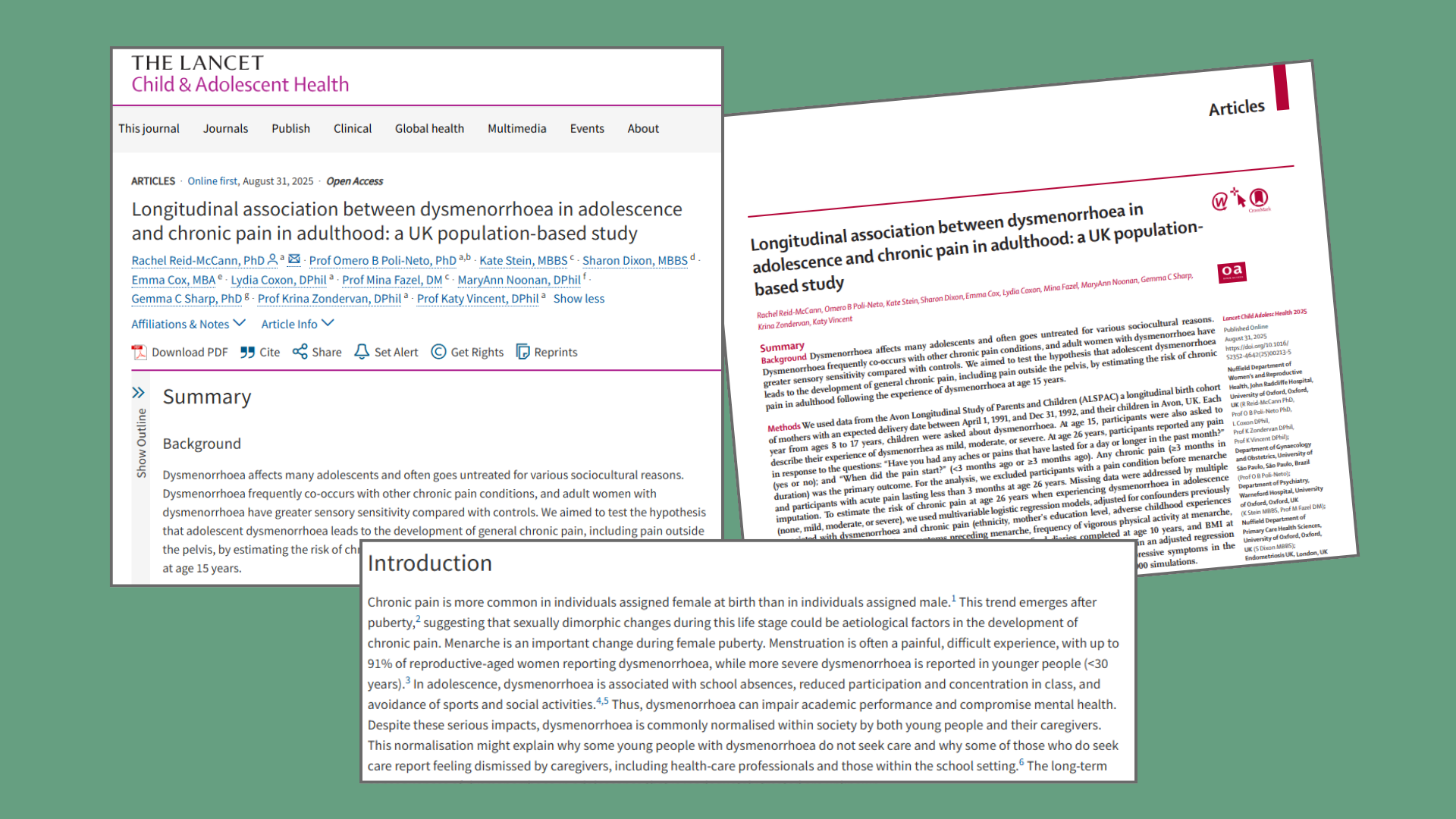The silent struggle: My journey through womanhood - a story too many women know only too well

Vanessa Peat
16 October 2025
When I think back to my teenage years, the beginning of puberty and the start of my period journey weren’t marked by preparation or open conversation. Like many young girls, the sex education I received at school focused on biological development and the mechanics of reproduction, and I received insight and understanding in Year 6 about periods. But in reality, the practicality of dealing with my first period when it arrived or how to cope, was something I was really unprepared for.
I grew up with my grandmother, and when my first period arrived, I remember feeling embarrassed and unprepared. I tried to manage it quietly with thick wads of toilet paper until I eventually caved in a couple of days later. She handed me a sanitary towel, the old-fashioned kind, and that was mainly that at the time. No big conversation. Just an unspoken understanding that this was the next stage of life.
What followed was years of heavy bleeding and agonising pain. Nights when I bled through bedding and had to change sheets in the middle of the night. Days when I missed school because the pain was unbearable. Moments in classrooms when I worried endlessly about leaking through my clothes. I learned to manage the pain with paracetamol and ibuprofen, frequent visits to the Med Centre, and to withdraw from PE lessons, not because I didn’t want to join in, but because I physically couldn’t.
During my teens I was prescribed tranexamic acid to reduce blood loss, huge tablets that I really struggled to swallow three times a day. Later came iron tablets, due to my fatigue and lack of concentration due to the massive blood loss, and then, eventually, I was offered the contraceptive pill in my early teens. The pill helped somewhat, but only after a long adjustment period. I lived with excruciating period pain throughout every cycle, and all of it was treated as though it was “just normal.”

My grandmother was nurturing, and my mum supportive, but like many families, we didn’t have the knowledge or language to push for deeper answers. This ‘pain’ was accepted as part of being a woman. It wasn’t until much later that I was referred to a gynaecologist and diagnosed with polycystic ovarian syndrome (PCOS). Hearing that news in my late teens was overwhelming; not only was I dealing with the day-to-day struggles of heavy periods, but I was suddenly told I might struggle to have children in the future, too. At that age, I hadn’t even thought much about motherhood. It was all a lot to take in.
And still, the underlying issue of severe pain was never truly investigated.
Sadly, my story isn’t unusual. Research shows that severe period pain (dysmenorrhoea) in adolescence is more than just a “bad period.” A UK population study published in The Lancet found that adolescents who experience moderate to severe dysmenorrhoea at age 15 have a significantly increased risk of developing chronic pain in adulthood. This isn’t just about discomfort once a month, it’s about a lifelong health burden that can affect education, work, relationships, and mental health.

This is why it’s so important that we change the narrative. Schools, GPs, and workplaces must take young women’s experiences seriously. Dismissing symptoms as “just part of being a girl” not only leaves people unsupported in the moment but risks storing up much bigger health challenges later on in life.
Looking back, I can see how much my experiences shaped me. They influenced how I parent, how I approach my health, and eventually, how I found myself working in the field of nutrition and wellbeing. But as I start to share my story, I know I’m also speaking for the many women who went through the same silent struggles.
This article is the first step in sharing my journey, from that very first period as a teenager, through twenty years of symptoms, misdiagnoses, motherhood, and finally having a diagnosis. I hope that by opening up this conversation, we can empower more women and girls to seek answers sooner, feel heard, and not have to carry the same silence that so many of us have in the past.
This is just the beginning of the journey I’ll be sharing with you.
Every two weeks, I’ll take you deeper through a part of my story, the challenges, the lessons, and the insights I’ve gained along the way.
Because women’s health deserves more than silence. It deserves to be seen, heard, and taken seriously.
